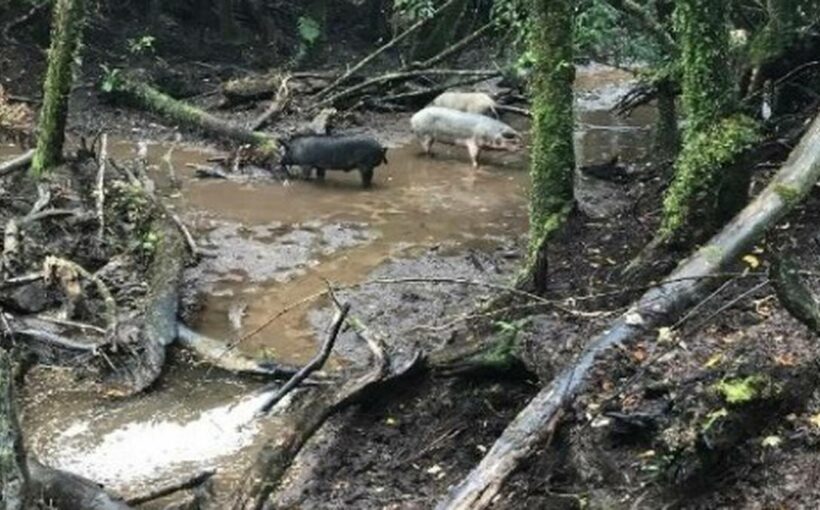A Rotorua farming company that allowed a number of pigs to roam free along a stream flowing into Lake Rotorua has been fined $27,000.
Rotorua-based Kleadmak Farms Limited was fined under the Resource Management Act by Judge Jeff Smith at the Tauranga District Court on Tuesday.
The charges included discharging contaminants into a stream, using land in a manner that contravenes a regional rule, and two charges of disturbing the bed of a river.
According to the summary of facts, the offending was discovered by a Bay of Plenty Regional Council officer after a complaint from a member of the public on November 3, 2020.
Two council compliance officers subsequently visited the property, which is managed by company owner Arthur Edward Aldridge.
The officers found 35 pigs roaming free among a section of the property not permitted for the farming of livestock, including two tributaries of the Umurua Stream.
They also discovered the carcasses of two pigs, damaged riparian planting, as well as a strong smell of pig effluent found to be flowing downstream.
In total, the livestock damaged about 325 metres of the first stream on the property and 115m of the second stream.
The summary of facts stated the animals urinated and defecated in the waterways, leading to faecal contamination of both streams, as well as a build-up of sewage fungus.
Large concentrations of faecal coliforms and E.coli were also detected in both streams.
Following the inspection, Aldridge admitted he had not taken appropriate action to rectify the situation and accepted the pigs had made “a hell of a mess”.
An abatement notice was issued by the council, instructing Aldridge to remove the livestock from the area immediately.
When council officers returned to the property three days later, they found the animals still had not been moved from the area.
Further samples of the streams were taken, showing that in parts of the stream, levels of faecal coliforms had risen since the original visit.
Compliance officers then met with Aldridge, who assured them he would remove the pigs that weekend.
By the council’s next visit three weeks later, all but eight of the pigs on the property had been removed, with the remaining pigs out of the way of the streams, but still within a restricted area.
Grass seed had also been applied to parts of the affected areas damaged by the livestock.
According to defence lawyer Stuart Ryan, the explanation for the stock being located in the prohibited area stemmed from the failure of a fence due to a fallen tree.
However, Ryan said his client accepted more action should have been taken to rectify the situation immediately, rather than allowing the pigs to remain in the area for about five months.
Prosecution lawyer Adam Hopkinson said the farming of the animals within the area “essentially means destruction of the riverbed and the vegetation”.
Judge Smith added: “You’re not going to convince me that this wasn’t happening for some time”.
“Those delays [in moving the pigs] show a course of conduct, although not deliberate, being indifferent to the effect they were having.”
The company pleaded guilty to the four charges, while an additional five charges placed against Aldridge himself were withdrawn.
In total, the company was sentenced to a fine of $45,000, reduced to a total of $27,000 due to a 25 per cent early guilty plea discount, as well as additional discounts for co-operation and a record of no previous convictions.
A total of 90 per cent of that fine must be repaid directly to the regional council.
Source: Read Full Article

/cloudfront-ap-southeast-2.images.arcpublishing.com/nzme/GVTUITHPWVKFU7LYQQGVZ4322M.jpg)
/cloudfront-ap-southeast-2.images.arcpublishing.com/nzme/TFQJWB6A73TWQVBGOOFONCWCSY.jpg)